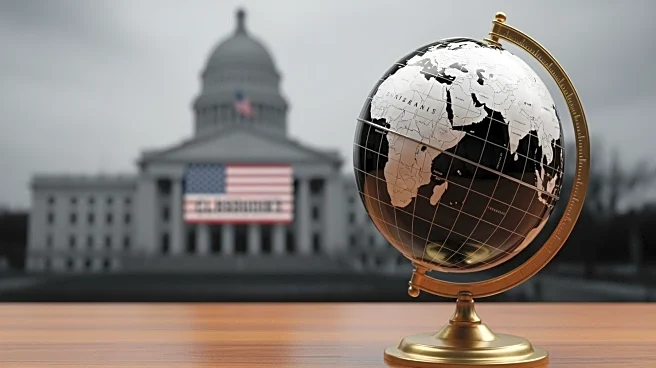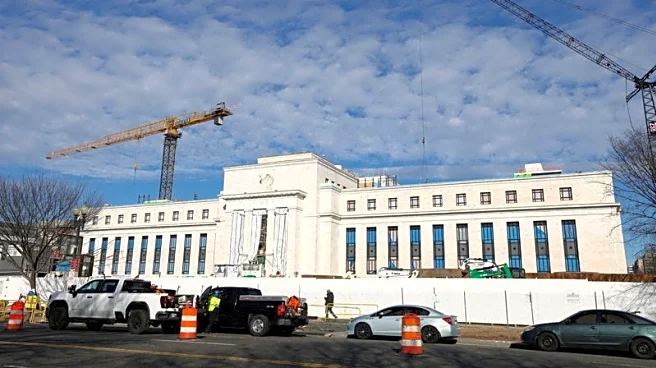What's Happening?
President Trump has embarked on a significant trip to Asia, marking his first visit to the region this term. The trip includes stops in Malaysia, Japan, and South Korea, where he aims to advance investment deals and peace efforts. A key highlight of the trip is a scheduled
meeting with Chinese President Xi Jinping at the Asia Pacific Economic Cooperation summit in South Korea. This meeting is anticipated to address the ongoing trade war between the U.S. and China. The trip occurs against the backdrop of a prolonged U.S. government shutdown, affecting federal workers and services. Despite the domestic challenges, Trump is focusing on international diplomacy and economic discussions, including potential investment deals worth $900 billion with Japan and South Korea.
Why It's Important?
The trip underscores the administration's focus on international economic relations amidst domestic challenges. The meeting with President Xi is particularly crucial as it could influence the trajectory of the U.S.-China trade war, which has significant implications for global markets. The potential easing of tariffs and new investment deals could bolster U.S. economic interests. However, the ongoing government shutdown presents a stark contrast, highlighting domestic political gridlock. The trip's outcomes could impact U.S. economic policy and international relations, with potential benefits for U.S. industries if successful agreements are reached.
What's Next?
Following the meetings in Malaysia, Japan, and South Korea, the outcomes of President Trump's discussions, particularly with President Xi, will be closely monitored. Any agreements or progress in trade negotiations could lead to shifts in U.S. economic policy and international trade dynamics. Additionally, the domestic response to Trump's international focus amidst the government shutdown will be a point of interest, potentially influencing political discourse and future policy decisions.

















